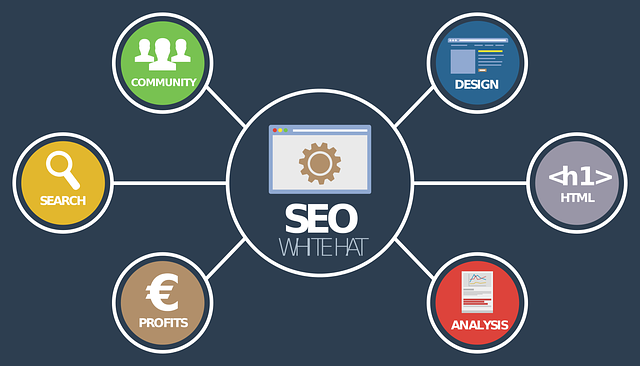In the digital landscape, SEO (Search Engine Optimization) is essential for website visibility and user acquisition. A well-crafted and meticulously executed SEO strategy is the key to standing out from the marketplace competition.
Search Engine Optimization (SEO) demands a strategic approach to drive organic traffic, enhance online visibility, and increase brand awareness.
In this comprehensive guide, we will delve into the core principles and strategies that constitute a robust SEO approach. From keyword research to technical SEO, content creation, link building, and website analytics, here are some of the essential SEO elements that empower websites to reach their full online potential.
The Foundation: Keyword Research and Analysis
The first step for a successful SEO campaign is comprehensive keyword research. List down the search queries your target audience uses when looking for products or services. Leverage tools like WordStream’s Free Keyword Tool, Google Keyword Planner, SEMrush, and Ahrefs etc. to provide valuable insights into search volume, competition, and user intent of the keywords.
The key is to identify a mix of short-tail and long-tail keywords that align with your business objectives. These keywords will serve as the compass guiding your content creation efforts and on-page SEO.
Craft Compelling Content that is Helpful to Users: Quality Over Quantity
High-quality content that is helpful and solves user queries is the backbone of any effective SEO strategy. Creating informative, engaging, and valuable content not only satisfies user intent but also positions your website as an authority in your niche.
Regularly update your website with blog posts, videos, infographics, and other content formats that address user needs and pain points. Incorporate your chosen keywords naturally, avoiding keyword stuffing. The goal is to strike a balance between SEO and user experience. Ensure the look, feel and tone of your content resonates with your audience while adhering to SEO best practices.
On-Page SEO: Enhance User Experience and Relevance
On-page SEO involves fine-tuning web pages to signal relevance to search engines and provide better user experience. Meta titles and description of web page should have targeted keywords and should accurately represent your content.
Organize your content using heading tags (H1, H2, H3) to improve readability and hierarchy. Internal linking to relevant pages within your website helps in user navigation, reduces bounce rates, and helps Google understand and index linked pages on the website. Optimizing images with descriptive alt text and ensuring fast page has positive impact on your website’s search rankings.
Link Building : Off Page SEO For Authority and Trust
Link building has an important role in SEO success. A strong network of authoritative backlinks demonstrates to search engines that your website is a trusted source of information. Focus on acquiring high-quality backlinks from reputable websites that are relevant to your business. Techniques like guest posting, influencer outreach, and content partnerships can help you secure valuable links. A few authoritative backlinks can outweigh numerous low-quality ones.
Technical SEO: Provide Seamless User Experience
Technical SEO involves optimizing the technical aspects of your website to improve its overall performance and user experience. Ensure your website is mobile-friendly, loads quickly, and offers SSL secure browsing environment. Mobile optimization is particularly important, as search engines prioritize mobile-friendly websites in their results. Choose a responsive website design that adapts to various screen sizes and devices to ensure a consistent and user-friendly experience.
A slow loading website hurts your Google rankings. Page speed in mobile search is the important Google ranking factor. Test your website and eliminate anything that slows down your page speed. You can test your website with and without CDN to know if there is any difference in loading speed. Third party scripts like comment section, and social media scripts such as Facebook’s pixel increase loading time significantly. Evaluate and delete 3rd party scripts that are not essential to your website.
GA4 and Analytics Data : Data Driven SEO Optimization
Regularly monitor GA4 (Google Analytics 4) and Google Search Console data to analyzing your SEO efforts and gauge the effectiveness of your strategies. Track key SEO metrics such as organic users, click-through rates, and keyword rankings. Regularly review your data to identify trends, customer demographics and opportunities for growth.
Understanding user behavior and analytics data is important to track and optimize the performance of your website or app. The specific metrics you should monitor in GA4 can vary depending on your business goals and objectives. Some of the most important metrics that requires regular monitoring are users and sessions, Pageviews, average session duration, bounce rate, event tracking data, top pages and content, traffic sources, geolocation and ecommerce metrics such as conversions and revenue. User demographics such as age, gender and interests helps you create buyer persona. You can also create custom metrics based on your specific business needs to track unique data points.
In the competitive realm of online business, a robust SEO strategy is necessary for success. SEO helps to create a powerful online presence that attracts, engages, and converts your target audience. Understand the impact of latest Google algorithm updates and industry trends. Create an SEO strategy that helps you address your individual business needs and sync with your overall digital marketing plan.
Author Bio
Hunaid Germanwala is a Digital Marketer, SEM, PPC & SEO Expert specializing in e-commerce & Web Analytics. He graduated with a Master’s Degree from Ulm University, Germany. He has over a decade of digital marketing experience spanning diverse e-commerce verticals, brands, and industries. Hunaid is the author of multiple books, crafts short stories, and blogs at howtowhere.com. You can find out more at his website https://hunaidgermanwala.com
